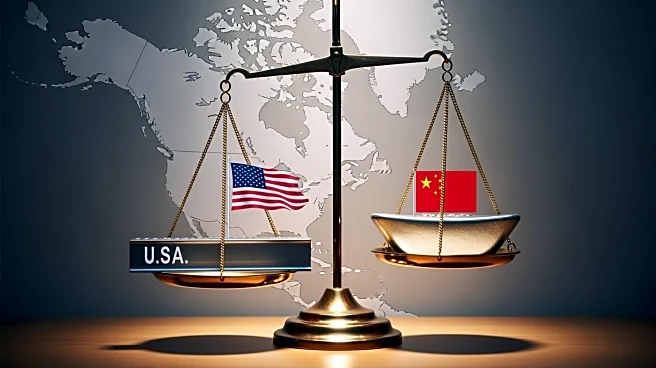What's Happening?
Canada has announced tariff relief on certain steel and aluminum products imported from the United States and China. This move is part of efforts to support domestic businesses affected by ongoing trade
tensions. Prime Minister Mark Carney is negotiating with President Trump, who imposed tariffs on Canadian steel and aluminum. Additionally, Canada is seeking relief from Chinese tariffs on agricultural goods. The Canadian Ministry of Finance has amended the surtax remission order to exempt specific steel and aluminum products not produced domestically, effective October 15. The relief aims to protect downstream sectors and maintain supply chains, with further details expected on November 5.
Why It's Important?
The tariff relief is crucial for Canadian industries, particularly those reliant on steel and aluminum imports for manufacturing, public health, and national security. By easing tariffs, Canada aims to mitigate the economic strain caused by trade disputes with the U.S. and China. This decision reflects Canada's strategic approach to maintaining trade relationships and supporting domestic economic stability. The relief could help Canadian businesses remain competitive and sustain operations amidst global trade uncertainties. It also highlights the importance of diplomatic negotiations in resolving trade conflicts and ensuring economic resilience.
What's Next?
Canada will continue negotiations with the U.S. and China to address broader trade issues and seek further relief. The upcoming publication of detailed remission order information on November 5 will provide clarity on the scope and impact of the tariff exemptions. Canadian businesses and industry stakeholders will be closely monitoring these developments to assess their implications for supply chains and market access. The government may also explore additional measures to support affected sectors and strengthen international trade partnerships.
Beyond the Headlines
The tariff relief initiative underscores the complexities of international trade relations and the need for adaptive policies in response to global economic shifts. It raises questions about the balance between protecting domestic industries and engaging in free trade. The situation also highlights the role of government intervention in mitigating the adverse effects of trade wars and ensuring economic stability. As Canada navigates these challenges, the broader implications for global trade dynamics and international cooperation remain significant.









